#Americanflowersweek Raises Awareness Via Botanical Couture
By Jill Brooke
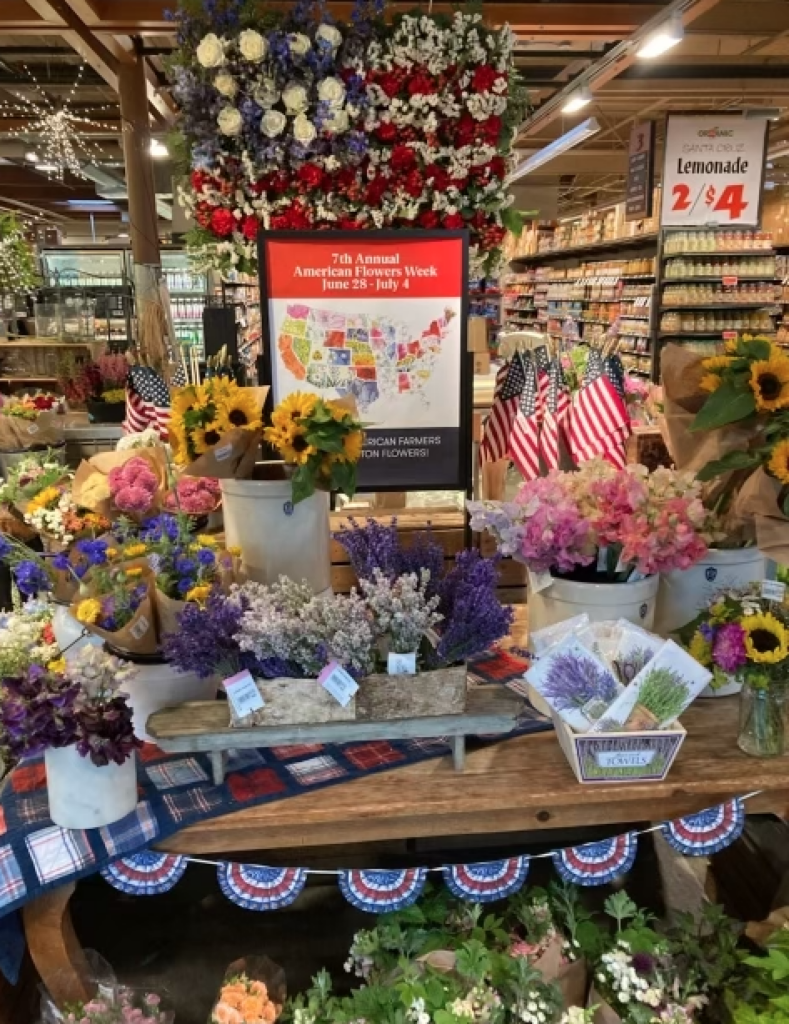
To raise awareness of American growers, Slow Flower Movement founder Debra Prinzing asked some of her favorites growers to help create what she named, “Botanical Couture” for her #americanflowersweek.
The Seatle-based Prinzing, who we call one of America’s goddesses of the garden, started this idea in 2015 as a “domestic promotion holiday.” After all, only 25% of U.S. flowers are domestically produced and the vast majority of flowers we love and use are from other parts of the globe such as South America, the Netherlands and Kenya.
“It’s the original, American-grown floral holiday that stimulates interest in beauty, seasonality, local agriculture and sustainable floral design,” says Prinzing. “The flowers, foliage, foraged botanicals and natural elements expands thinking so flowers are transformed as art or sculpture, as fashion and beauty and as a symbol of the human desire to connect with nature.”
Prinzing needed some fun catnip to attract interest for #americanflowersweek which lands the week around July 4th and this fashion-friendly idea rooted.
“People love it,” says Prinzing, who also organizes seminars and events to promote U.S. grown flowers. In fact, Town & Country Market in Brainbridge Island, Washington, celebrated the concept at their store as did many others. And of course, the Botanical Couture segment is so Instagram-friendly that it helps promote raising awareness for people to think local.
The inventive creations were supported by companies including U.S. Growers, Kilcoyne Lilac Farm in Acton, California, Hilltop Community Gardens in LaValle, Wisconsin, Jig-Bee Farm in Philadelphia, Pennsylvania, CamFlor in Watsonville, California, Johnny’s Selected Seed in Winslow, Maine, Johnny’s Seeds, Folk Art Flowers in Seattle and FTD.
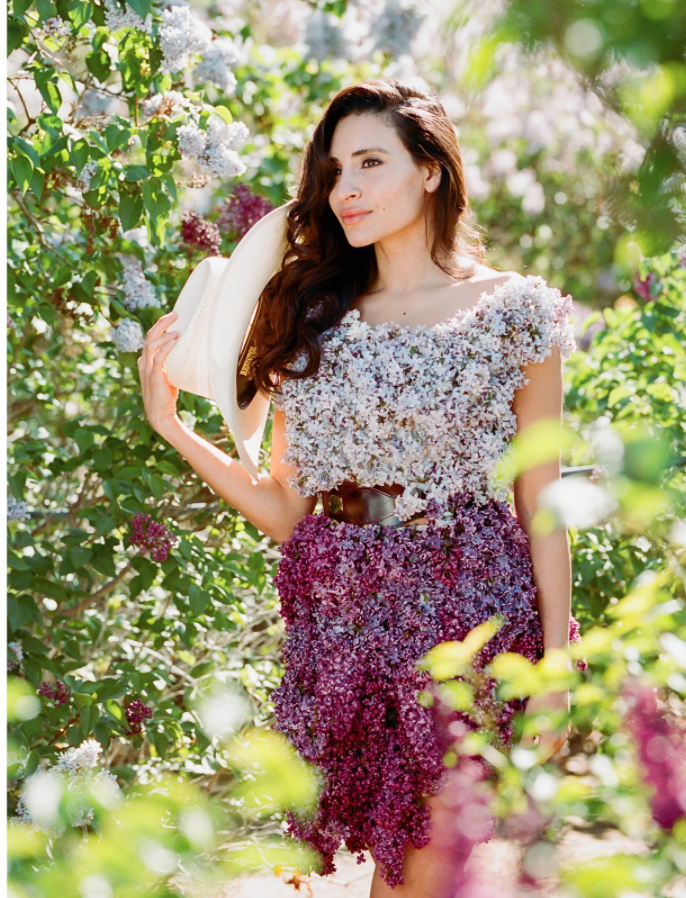
For one of the Botanical Couture creations, florist Margaret Lloyd of Margaret Joan Florals teamed with Kilcoyne Lilac Farm in Acton, California. In fact, Lloyd met the owner. Elizabeth Kilcoyne at a farmer’s market where they lamented that lilacs with their heavenly scents weren’t used more in wedding bouquets and events – especially for April weddings.
As Prinzing points out, there are seven great lilac farms in the U.S.
“Scent is so memorable,” says Lloyd, joking that “after you may hate your husband after time being around lilacs may remind you what brought you together. Positive memorable scents help revisit moments.” There is truth to that. Rachel Herz, a neuroscientist and researcher of scents at Brown University, has said that “emotion and memory can be manipulated by scent.”
In fact, Lloyd also once made a lilac bouquet for a bride but also suggests using them for areas around banquet tables and bars.
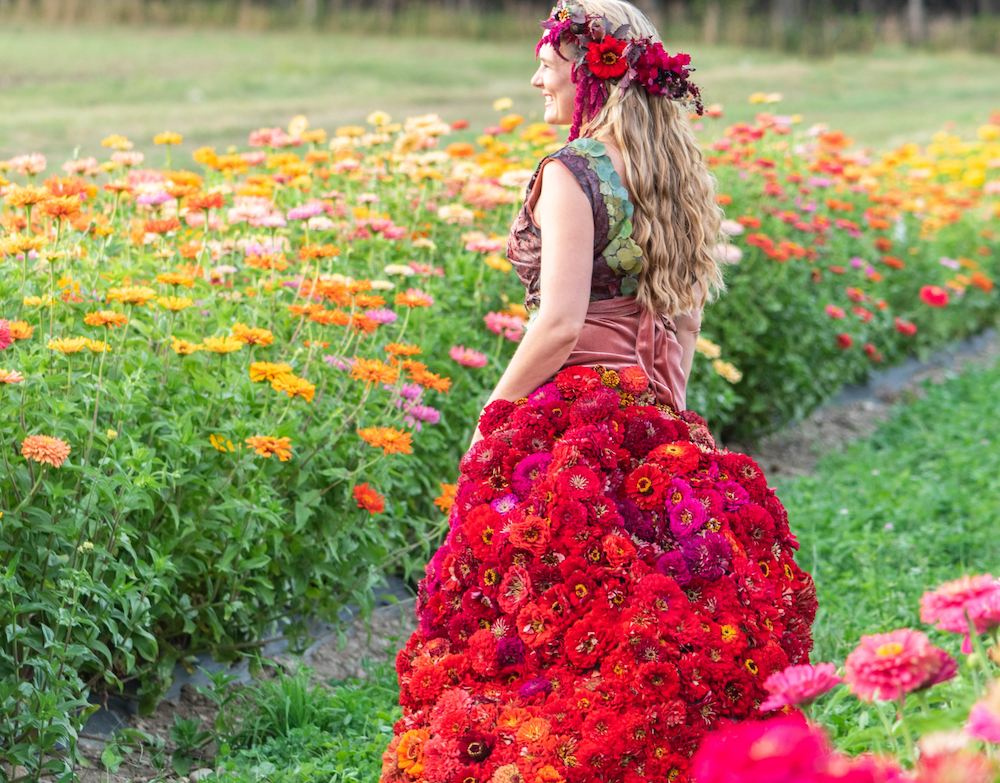
Over in Winslow Maine, Hilary Ager, floral and herb product manager of Johnny’s Selected Seeds in Winslow, Maine and Joy Longfellow, manager of the floral trial programs, came up with a clever idea for those bridesmaid dresses we never wear again.
Since zinnias are Johnny’s second-most important flower crop after sunflowers, Ager and Longfellow draped the dress in waves of glorious colored zinnias and shot the picture in front of a zinnia field. So pretty, right? Zinnias are truly my favorite flower since they are so easy to grow.
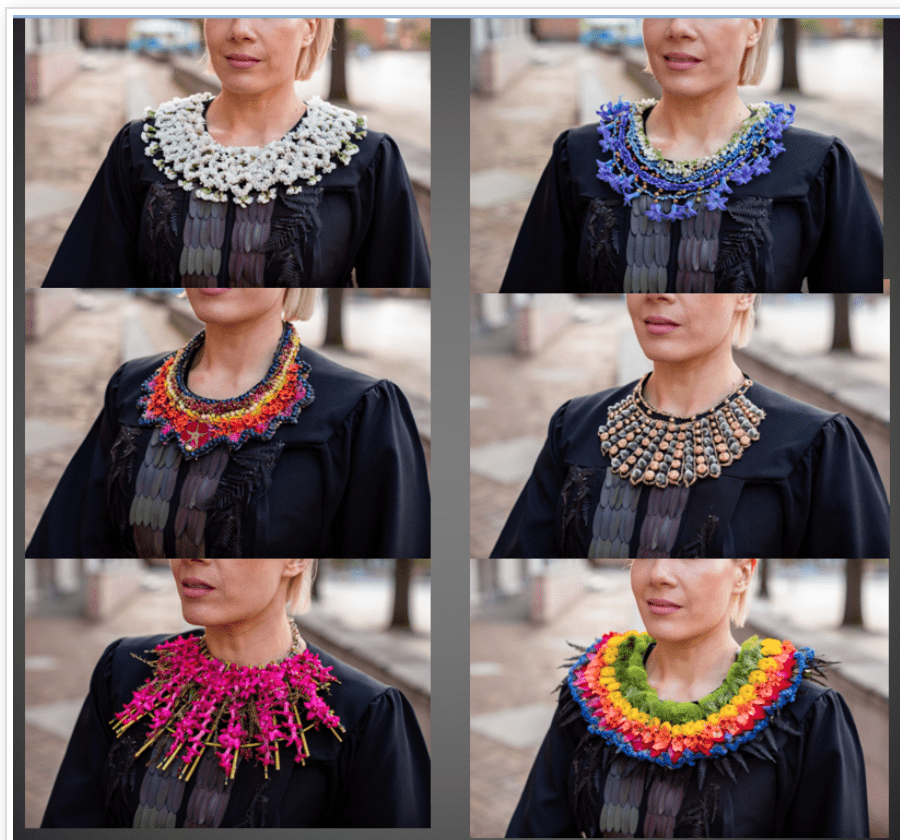
We also loved how Tammy Myers, founder of Seatle-based LORA Bloom not only created a dahlia quilt to honor the Karuk Tribe and her grandfather’s Native American heritage but floral collars and jabots inspired by the ones the late Justice Ruth Bader Ginsburg wore. She asked six designers to interpret the feminist icon who helped women compete in the workplace to interpret her jabots including Anne Bradfield of Analog Floral, Maura Whalen of Casablanca Floral, Sharlet Driggs of Sharlet Floral, Lori Poliski of Flori, Sophie Strongman of The Old Soul Flower Co and Kristal Hancok of Sublime Stems.
And here are some others as well as a free book you can peruse to see all the creations. (https://fliphtml5.com/vlcrw/rgpg)
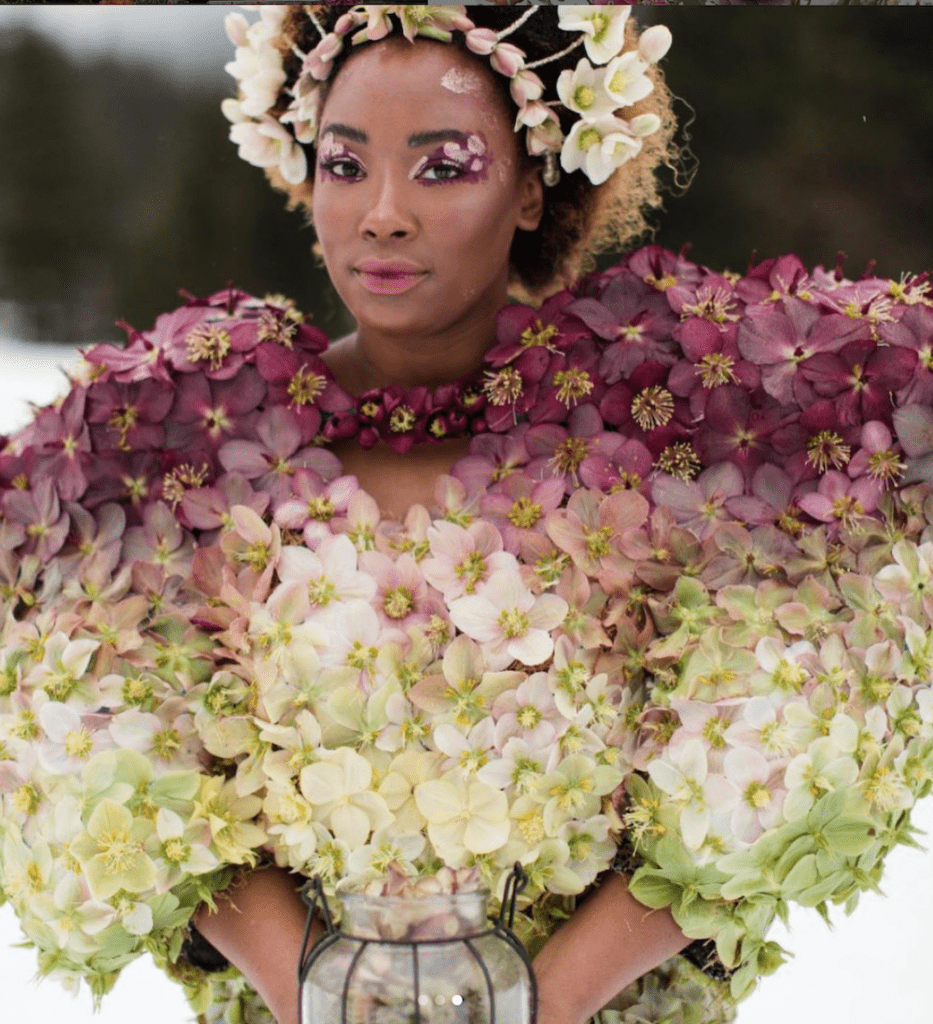
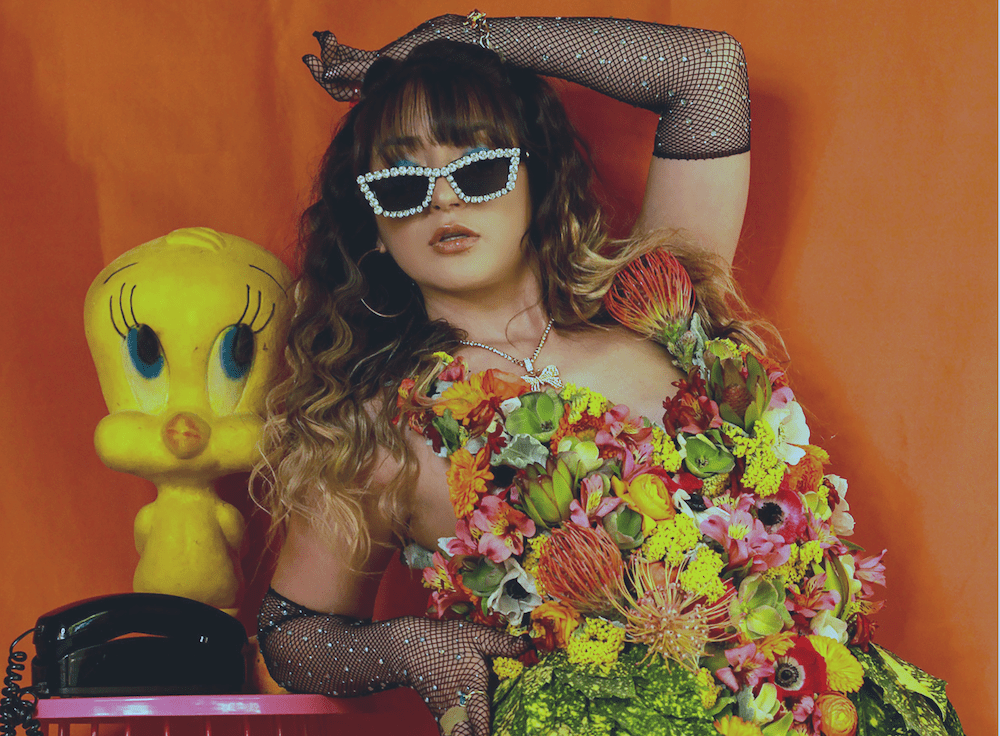
Prinzing’s inspiration came from visiting the Chelsea Flower Show in 2015 where she met Helen Evans, who was involved with the New Covent Garden Market’s successful British Flowers Week campaign. Evans suggested to Prinzing that she launch something similar in the United States, which is exactly what she has done. “And now Canada is also going to have a similar campaign,” says Prinzing.
So for this week, consider asking and investigating American grown flowers when you gather your bouquets. Or go to local farms. They are also a fun family activity and yes, patriotic and helpful to do. Next year, Prinzing will host the summit at Stone Barns Center for Sustainable Agriculture which should be something on anyone’s bucket list. The dates will be June 27-28, 2022.
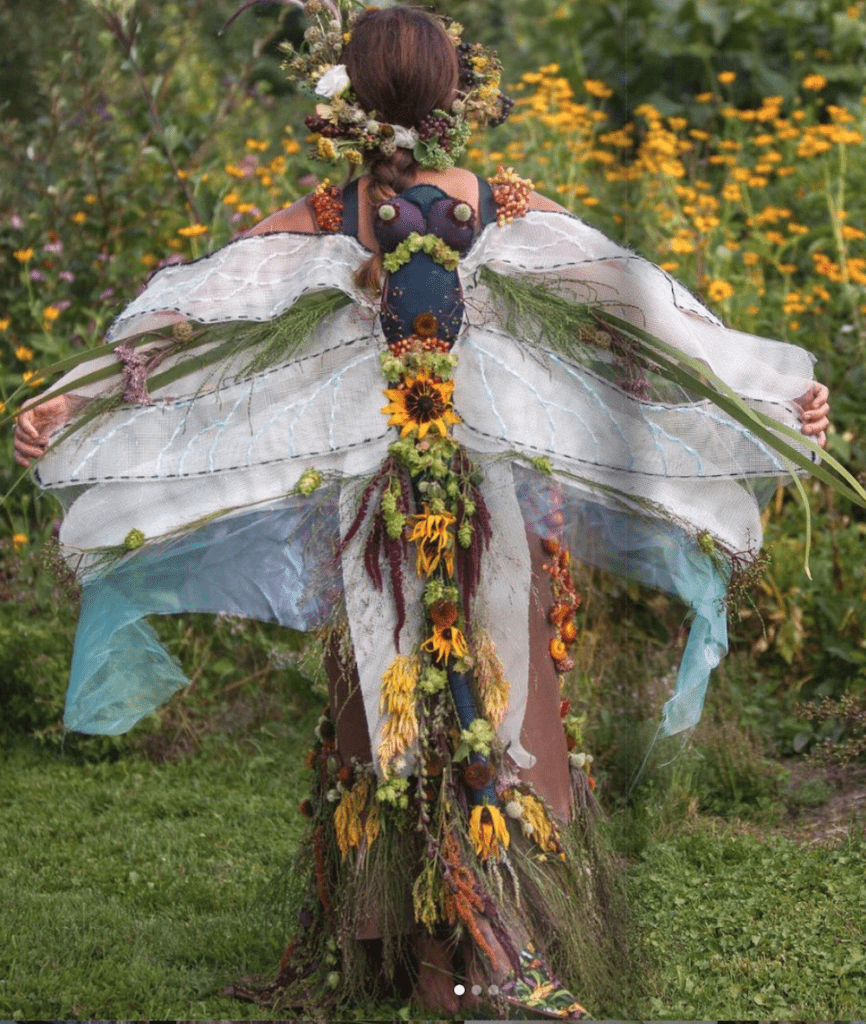
Jill Brooke is a former CNN correspondent, Post columnist and editor-in-chief of Avenue and Travel Savvy magazine. She is an author and the editorial director of FPD and floral editor for aspire design and home magazine
